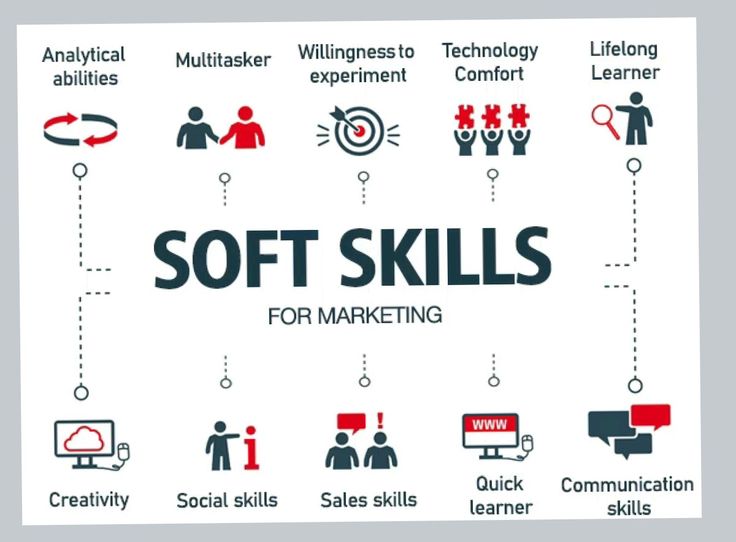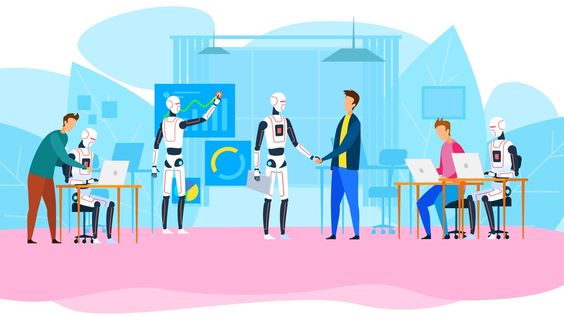The landscape of work is evolving rapidly, and at the forefront of this transformation is artificial intelligence (AI). The future of online jobs is being reshaped by AI, creating new opportunities and changing how we approach remote work and earning money online. In this blog post, we’ll explore how AI is driving these changes and what it means for the future of online employment.
The Rise of AI in the Workforce
AI’s impact on the future of online jobs is profound and multifaceted. From automating routine tasks to enabling entirely new forms of work, AI is revolutionizing how we think about remote employment. According to a Forbes report, AI technology is enhancing productivity and creating more flexible job opportunities.
Automation of Routine Tasks

One of the most significant ways AI is influencing the future of online jobs is through the automation of routine tasks. AI-powered tools can handle repetitive tasks such as data entry, scheduling, and customer support. This automation allows remote workers to focus on more strategic and creative aspects of their jobs. For instance, tools like Zapier and Automate.io streamline workflows by connecting different apps and automating tasks, freeing up time for higher-value work.
AI’s ability to analyze vast amounts of data at high speed makes it an ideal tool for automating routine processes. This technology can handle tasks like generating reports, managing email responses, and even conducting preliminary research. As AI continues to advance, we can expect even more complex tasks to be automated, further changing the landscape of online jobs.
Additionally, AI’s impact on automation extends to fields such as finance, healthcare, and marketing. In finance, AI algorithms can process large datasets to identify trends and make investment recommendations. In healthcare, AI can assist in diagnosing medical conditions by analyzing patient data. In marketing, AI tools can optimize advertising campaigns by analyzing consumer behavior and preferences.
New Job Roles and Opportunities
AI is not just replacing existing jobs but also creating new ones. As AI technology advances, new roles are emerging that didn’t exist a few years ago. Positions such as AI trainers, AI ethics specialists, and data annotators are becoming increasingly important. The World Economic Forum predicts that AI will create 97 million new job roles by 2025, illustrating the potential for growth in this sector.
AI trainers are responsible for teaching AI systems how to perform specific tasks by providing them with relevant data. AI ethics specialists focus on ensuring that AI systems are used responsibly and ethically. Data annotators play a crucial role in labeling and categorizing data to train AI models effectively. These new job roles require specialized skills and knowledge, offering exciting career opportunities for those interested in working with AI.
Other emerging roles include AI product managers, who oversee the development and deployment of AI technologies, and AI business consultants, who help organizations integrate AI solutions into their operations. As AI continues to evolve, the demand for professionals with expertise in these areas will likely grow.
The Impact of AI on Remote Work
Remote work has seen a surge in popularity, and AI is playing a crucial role in making it more efficient and accessible. The future of online jobs is intricately linked with advancements in AI that facilitate remote work and collaboration.
Enhanced Communication Tools
AI-driven communication tools are transforming how remote teams collaborate. Platforms like Slack and Microsoft Teams incorporate AI features to enhance communication and project management. AI algorithms can prioritize messages, suggest responses, and even transcribe meetings, making remote collaboration more seamless.
These tools use natural language processing (NLP) to understand and respond to user input more effectively. For example, AI-powered chatbots can handle routine inquiries, allowing human team members to focus on more complex tasks. Additionally, AI can analyze communication patterns to identify potential issues and suggest improvements, enhancing overall team efficiency.
Furthermore, AI is enabling real-time translation and transcription services, breaking down language barriers and facilitating communication among global teams. This capability is particularly valuable for remote teams working across different time zones and languages.
AI-Powered Productivity Boosts
Productivity tools powered by AI are also on the rise. Applications like Trello and Asana use AI to help users organize and track their tasks more effectively. AI can analyze work patterns and suggest improvements, helping remote workers stay on top of their responsibilities and deadlines.
AI-driven productivity tools offer features such as automated task prioritization, personalized recommendations, and performance tracking. These tools can analyze historical data to identify trends and provide actionable insights, helping users optimize their workflows and achieve their goals more efficiently.
Additionally, AI-powered virtual assistants can help manage schedules, set reminders, and handle administrative tasks. This automation frees up time for more strategic activities and allows remote workers to focus on high-impact work.
How AI is Creating New Income Streams

The future of online jobs is not just about traditional employment; AI is also enabling new ways to earn money online. Whether through gig platforms or innovative business models, AI is opening doors to diverse income opportunities.
Gig Economy Platforms
AI is revolutionizing the gig economy by matching freelancers with clients more efficiently. Platforms like Upwork and Fiverr use AI algorithms to connect skilled freelancers with job opportunities based on their expertise and experience. This matchmaking process increases the likelihood of successful projects and repeat business.
AI algorithms can analyze freelancers’ profiles, past performance, and client reviews to recommend the most suitable candidates for specific projects. This targeted approach benefits both freelancers and clients, leading to more successful collaborations and higher satisfaction rates.
Moreover, AI-driven platforms can provide insights into market demand, helping freelancers identify high-growth areas and tailor their services accordingly. This data-driven approach enables freelancers to stay competitive and maximize their earning potential.
AI-Driven Content Creation
AI tools like Jasper and Copy.ai assist writers and marketers by generating high-quality content quickly. social media posts, and marketing copy, enabling content creators to focus on strategy and creativity.
AI-generated content can be customized to fit different styles and tones, making it a valuable resource for businesses and individuals looking to produce content at scale. Additionally, AI tools can optimize content for search engines, increasing its visibility and effectiveness.
AI is also enabling the creation of personalized content experiences. For example, AI can analyze user behavior and preferences to generate tailored recommendations and offers, enhancing the effectiveness of marketing campaigns and driving higher engagement rates.
Investing and Trading
AI is also influencing how people invest and trade online. Platforms like Robinhood and ETRADE incorporate AI to analyze market trends and provide personalized investment recommendations. This technology empowers individuals to make informed financial decisions and potentially increase their earnings.
AI-powered trading platforms use algorithms to analyze market data, identify patterns, and make predictions about future trends. These tools can help investors make data-driven decisions and manage their portfolios more effectively. Additionally, AI can automate trading strategies, allowing users to capitalize on market opportunities without constant monitoring.
Furthermore, AI is enabling the development of robo-advisors, which provide automated, algorithm-driven financial planning services. These platforms offer personalized investment advice based on individual financial goals and risk tolerance, making investment management more accessible to a broader audience.
The Challenges and Considerations
While AI presents numerous opportunities, it also comes with challenges that need to be addressed. The future of online jobs will require us to navigate these challenges thoughtfully.
Skills and Training
As AI continues to evolve, there will be a growing need for skills and training in AI-related fields. Professionals will need to stay updated with the latest technologies and methodologies to remain competitive. Online courses and certifications, such as those offered by Coursera and edX, can help individuals acquire the necessary skills for the AI-driven job market.
Educational institutions and training programs are increasingly offering courses focused on AI and machine learning. These programs cover topics such as data analysis, algorithm development, and ethical considerations in AI, providing a comprehensive foundation for those looking to enter the field.
Additionally, staying informed about emerging AI trends and technologies will be crucial for career development. Subscribing to industry publications, attending conferences, and participating in professional networks can help individuals stay ahead in the rapidly changing job market.
Ethical and Privacy Concerns
The rise of AI also raises ethical and privacy concerns. Ensuring that AI systems are used responsibly and that personal data is protected is crucial. Companies and individuals must be aware of the ethical implications of AI and work towards creating transparent and accountable AI systems.
Ethical considerations include addressing biases in AI algorithms, ensuring fairness in AI decision-making, and protecting user privacy. Organizations must implement robust data protection measures and conduct regular audits to ensure compliance with ethical standards and regulations.
Additionally, policymakers and industry leaders must work together to establish guidelines and best practices for the responsible use of AI. Public awareness and education about AI ethics will also play a crucial role in ensuring that AI technologies are developed and used in a way that benefits society as a whole.
Preparing for the Future of Online Jobs

To thrive in the future of online jobs, individuals should embrace AI and leverage its capabilities to enhance their careers and income opportunities. Here are a few tips to prepare for this evolving landscape:
- Upskill Continuously: Invest in learning new skills and staying updated with AI trends. Online courses, certifications, and workshops can provide valuable knowledge and credentials.
- Explore AI Tools: Familiarize yourself with AI tools and platforms that can enhance your productivity and create new opportunities. Experiment with AI-powered content creation tools, productivity apps, and investment platforms to find what works best for you.
- Network and Collaborate: Connect with professionals and experts in the AI field. Join industry forums, attend conferences, and participate in online communities to expand your network and gain insights from others.
- Adapt and Innovate: Be open to change and innovation. Embrace new job roles and income streams created by AI, and look for ways to adapt your skills and expertise to the evolving job market.
- Prioritize Ethics and Privacy: Stay informed about ethical considerations and best practices in AI. Ensure that you use AI tools responsibly and protect your personal data and privacy.
FAQs:
What will AI do to jobs in the future?
AI will automate routine tasks, create new job roles, enhance productivity, and enable more flexible work arrangements.
Which new jobs will be created by AI?
AI will create roles such as AI trainers, AI ethics specialists, data annotators, AI product managers, and AI business consultants.
Will AI create 97 million new jobs by 2025?
Yes, according to the World Economic Forum, AI is expected to create around 97 million new job roles by 2025.
Will AI create jobs or replace jobs?
AI will both create new jobs and replace existing ones. It will automate certain tasks while generating new opportunities in AI-related fields.
How does AI make jobs easier?
AI makes jobs easier by automating repetitive tasks, enhancing decision-making with data insights, and providing tools that improve efficiency and productivity.
What is the role of AI in jobs?
AI assists in automating tasks, analyzing data, optimizing workflows, and supporting decision-making, making various job functions more efficient.
Why is AI better for jobs?
AI improves job efficiency by handling repetitive tasks, providing data-driven insights, and enabling more strategic and creative work.
What are the opportunities of artificial intelligence?
AI offers opportunities in automation, new job creation, enhanced productivity, personalized services, and innovative business models.
What is the future of AI?
The future of AI involves continued advancements in technology, increased integration into various industries, and the creation of new opportunities and challenges in the workforce.
Conclusion
The future of online jobs is being shaped by AI, creating new opportunities and transforming how we work and earn money online. AI’s impact on automation, remote work, and income generation is profound, offering exciting possibilities for those who are ready to embrace these changes. By staying informed, adapting to new technologies, and focusing on ethical considerations, individuals can position themselves for success in this rapidly evolving landscape.
As we move forward, the key to thriving in the future of online jobs will be to embrace AI’s potential while navigating its challenges. The opportunities are vast, and with the right approach, the future of online work can be both rewarding and fulfilling.





[…] more information on integrating AI into your strategies, check out this comprehensive guide on AI in affiliate marketing and explore additional resources on AI-driven content […]